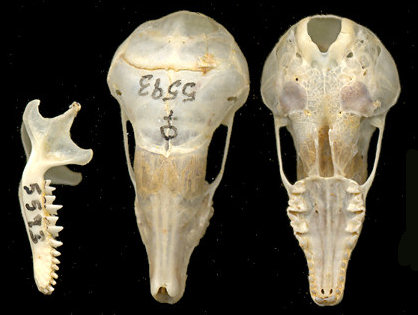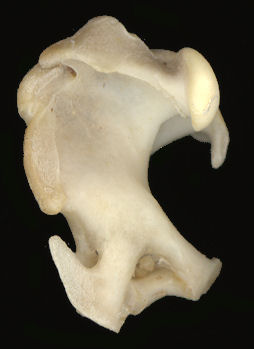The family Talpidae (also previously considered as members of the order Insectivora) is Holarctic in distribution, occurring south in Eurasia to the Mediterranean and Himalayas and in North America south into northern Mexico. Although many of the family are highly fossorial, others are aquatic or semiaquatic that occasionally burrow. All are insectivorous, but some also take some plant material and aquatic and semiaquatic types feed also on crustaceans, mollusks, and fish.
In the U.S., the semi-arid western Great Plains, Rockies, and Great Basin effectively separate eastern from western moles. The West Coast (mostly the northern parts to extreme southwestern Canada) supports two genera: Neurotrichus and Scapanus, whereas the eastern part of the continent has three genera (Scalopus, Parascalops, and Condylura). The two subspecies of Scalopus aquaticus approaching our region are isolated populations known only from their type localities in Coahuila and in the Big Bend of Texas.
Some of the characteristics of American moles are absence of pinnae, eye opening in skin absent or extremely small (depending on species), presence of a complete zygomatic arch (though delicate), and W-shaped occlusal surfaces on the upper molars. Some of the adaptations for fossorial life include forefeet much broader than thick; velvety pelage that can brush forward or backward with equal facility; a short and massive clavicle; a short broad humerus; an os falciforme present in the forefoot, increasing its size. (the os falciforme bone is not homologous to the usual bones of the skeleton; presumably this is a modified sesemoid bone; sesemoid bones are bones developed within a tendon or joint capsule, such as the patella.) The terminal phalanges of the forefoot are bifurcate.


Lower jaw, skull, and humerus of Scapanus (humerus not to scale).
Last Update: 22 Jan 2008
Centennial Museum and Department of Biological Sciences, The University of Texas at El Paso